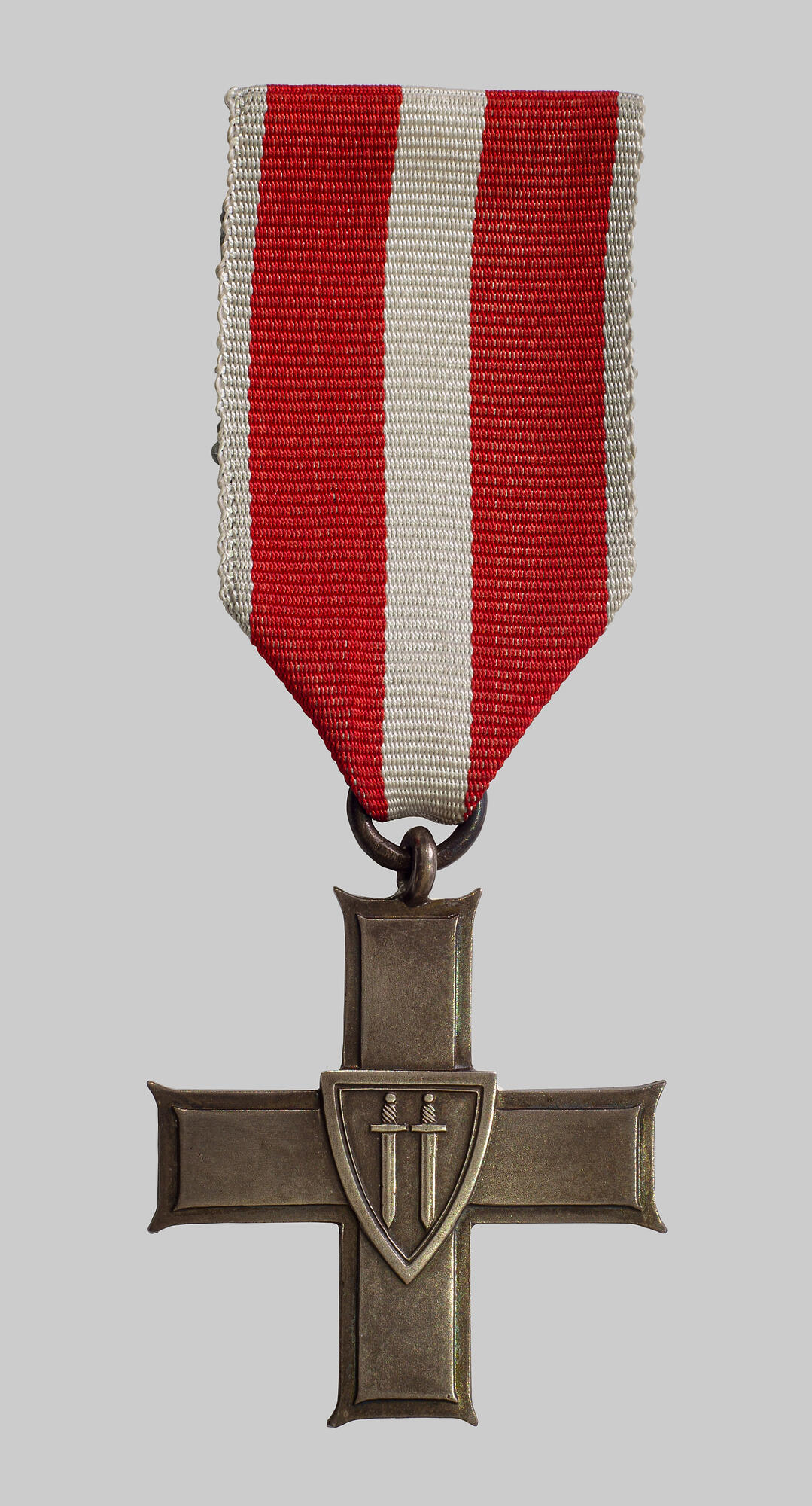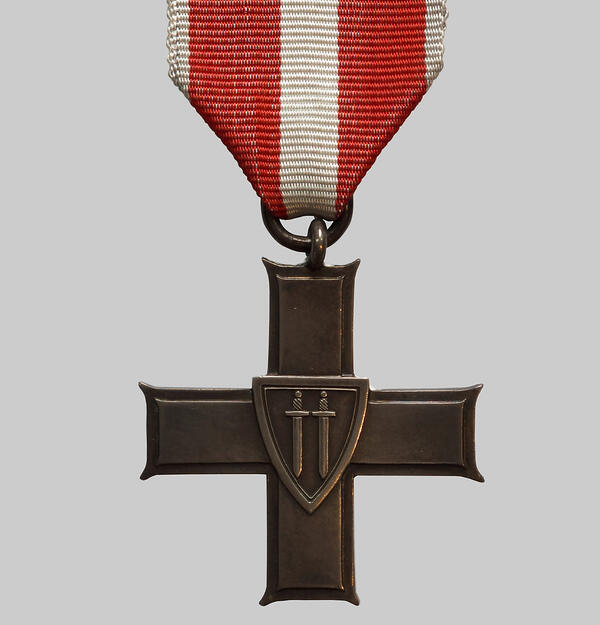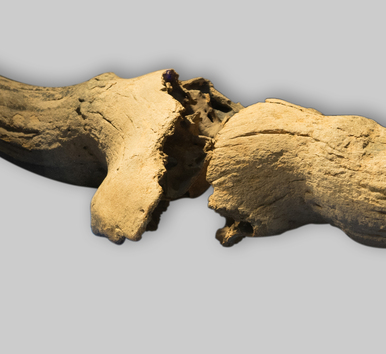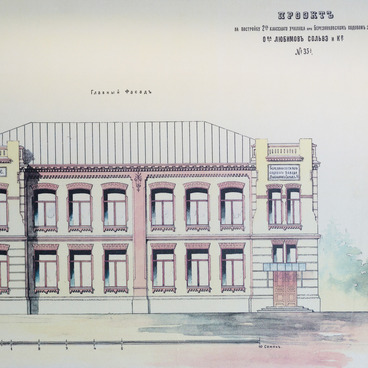The Grunwald Cross is a Polish military order established in November 1943. The order was awarded to both Polish and foreign citizens for valor in the struggle against the invaders, for the freedom and independence of Poland, for services in organizing the armed forces and the successful conduct of military operations. The award was received, among other things, by many generals and officers of the Soviet Army - participants in the battles for the liberation of Poland in 1944-1945.
The Order had three classes. The Order of the 1st Class was awarded for the successful military operation, which resulted in the defeat of the enemy, as well as for special services in organizing the Resistance movement. Order of the 2nd class - for outstanding distinctions in commanding military formations and for outstanding services in underground work. Order of the III class - for personal courage on the battlefield and for work underground. In 1945, Major Gennady Bratchikov, a native of Perm province, was posthumously awarded the Grunwald Cross, 3rd class.
The Leningrad Higher School of Communications graduate, he distinguished himself in the battle with the Japanese militarists on the Khalkhin-gol River in Mongolia in 1939. Later he attended courses at the Military Academy n.a. Frunze in Moscow in 1941-1942. He participated in the defense of Stalingrad in 1942-1943.
From January 1943 to December 1944, Bratchikov was at the disposal of the Main Intelligence Directorate of the Red Army. In the spring of 1943 he was sent to carry out special assignments behind enemy lines where he performed assignments in Ukraine and Belarus. Later, Marshal of the Soviet Union Nikolai Krylov mentioned the name of Gennady Bratchikov among the outstanding intelligence officers Richard Zorge, Manevich, Leonov, Linkov, Morozova.
During a mission in Poland, Bratchikov’s reconnaissance group was discovered due to a misunderstanding of local residents. A number of SS units set out to seek for the scouts who escaped among the swamps of the Vkra River. On December 10, 1944, the Nazis surrounded a small group of Soviet fighters on a lonely island among the swamps. While fighting off the attack, Bratchikov was killed.
Later, Polish partisans managed to steal the body of an intelligence officer from the local gendarmerie and bury it near Myslín. Then the remains of the major were reburied in the Polish town of Bezhun.
On September 1, 1966, a massive marble slab was erected at the site of Bratchikov’s first burial, on which it was written in golden letters in Polish: ‘To the Hero of the Soviet Union, Guards Major Gennady Ivanovich Bratchikov, who died in the fight against the Nazi invaders on December 10, 1944 in Myslin Zhurominsky district. Honor to his memory! ’
The Order had three classes. The Order of the 1st Class was awarded for the successful military operation, which resulted in the defeat of the enemy, as well as for special services in organizing the Resistance movement. Order of the 2nd class - for outstanding distinctions in commanding military formations and for outstanding services in underground work. Order of the III class - for personal courage on the battlefield and for work underground. In 1945, Major Gennady Bratchikov, a native of Perm province, was posthumously awarded the Grunwald Cross, 3rd class.
The Leningrad Higher School of Communications graduate, he distinguished himself in the battle with the Japanese militarists on the Khalkhin-gol River in Mongolia in 1939. Later he attended courses at the Military Academy n.a. Frunze in Moscow in 1941-1942. He participated in the defense of Stalingrad in 1942-1943.
From January 1943 to December 1944, Bratchikov was at the disposal of the Main Intelligence Directorate of the Red Army. In the spring of 1943 he was sent to carry out special assignments behind enemy lines where he performed assignments in Ukraine and Belarus. Later, Marshal of the Soviet Union Nikolai Krylov mentioned the name of Gennady Bratchikov among the outstanding intelligence officers Richard Zorge, Manevich, Leonov, Linkov, Morozova.
During a mission in Poland, Bratchikov’s reconnaissance group was discovered due to a misunderstanding of local residents. A number of SS units set out to seek for the scouts who escaped among the swamps of the Vkra River. On December 10, 1944, the Nazis surrounded a small group of Soviet fighters on a lonely island among the swamps. While fighting off the attack, Bratchikov was killed.
Later, Polish partisans managed to steal the body of an intelligence officer from the local gendarmerie and bury it near Myslín. Then the remains of the major were reburied in the Polish town of Bezhun.
On September 1, 1966, a massive marble slab was erected at the site of Bratchikov’s first burial, on which it was written in golden letters in Polish: ‘To the Hero of the Soviet Union, Guards Major Gennady Ivanovich Bratchikov, who died in the fight against the Nazi invaders on December 10, 1944 in Myslin Zhurominsky district. Honor to his memory! ’



